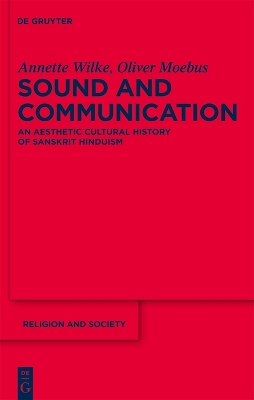Religion and Society
1 total work
In Hindu India both orality and sonality have enjoyed great cultural significance since earliest times. They have a distinct influence on how people approach texts. The importance of sound and its perception has led to rites, models of cosmic order, and abstract formulas. Sound serves both to stimulate religious feelings and to give them a sensory form. Starting from the perception and interpretation of sound, the authors chart an unorthodox cultural history of India, turning their attention to an important, but often neglected aspect of daily religious life. They provide a stimulating contribution to the study of cultural systems of perception that also adds new aspects to the debate on orality and literality.
